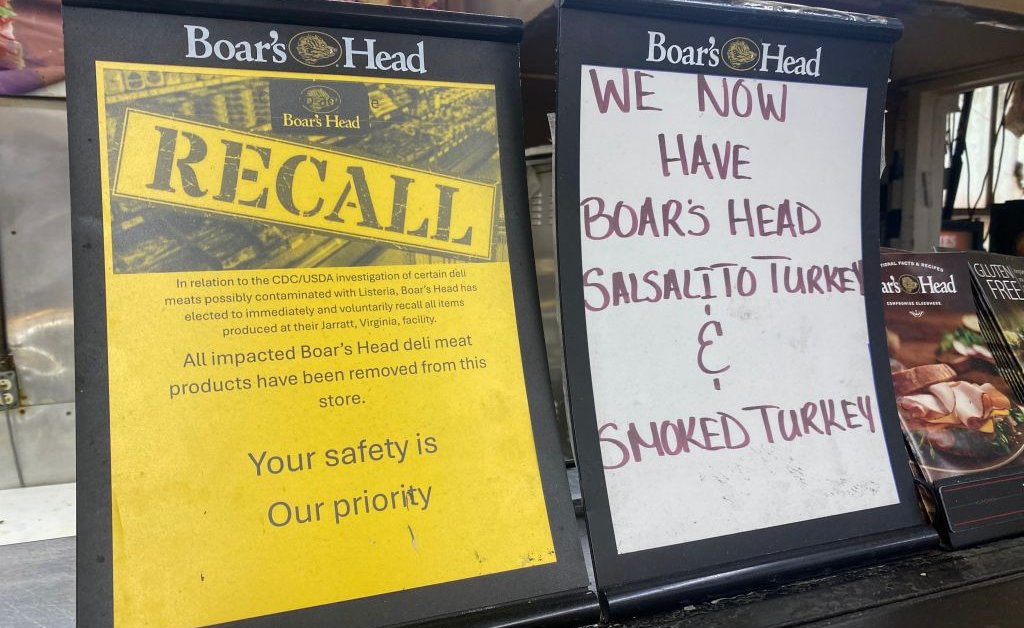Mass Layoffs Threaten US Food Safety Standards
Editor’s Note: Concerns are mounting today regarding the potential impact of mass layoffs across the US food industry on the nation's food safety standards.
Introduction:
The recent wave of mass layoffs sweeping across the US food industry is raising serious questions about the future of food safety standards. With fewer inspectors, processing plant workers, and agricultural laborers, the risk of compromised food safety protocols and potential outbreaks is significantly increasing. This article will delve into the key concerns, explore the potential consequences, and offer insights into the crucial need for proactive measures.
Why This Topic Matters
The safety of the US food supply is paramount. Millions depend on a reliable and safe food system. Mass layoffs directly impact this system by potentially leading to:
- Reduced inspection frequency: Fewer inspectors mean less oversight of food processing plants and agricultural operations, increasing the likelihood of contamination and non-compliance.
- Compromised hygiene practices: Layoffs can lead to overworked employees, resulting in fatigue and potentially less stringent adherence to hygiene protocols.
- Increased foodborne illnesses: A decline in food safety standards translates directly into a higher risk of outbreaks of foodborne illnesses, impacting public health and placing a burden on the healthcare system.
- Economic consequences: Foodborne illnesses lead to lost productivity, medical expenses, and potential legal liabilities for food producers.
This article will analyze these points, highlighting the urgency of addressing the situation.
Key Takeaways
| Point | Impact |
|---|---|
| Reduced Inspections | Increased risk of contamination and non-compliance |
| Workforce Shortages | Overworked employees, potential hygiene lapses, higher error rates |
| Supply Chain Disruptions | Delays, potential spoilage, increased costs |
| Increased Illness Outbreaks | Public health crisis, economic burden on healthcare and businesses |
| Regulatory Gaps | Insufficient resources to effectively enforce existing food safety rules |
Mass Layoffs Threaten US Food Safety Standards
The current economic climate is forcing many food companies to resort to mass layoffs. This reduction in workforce, across all sectors of the food production chain – from farm to table – presents a significant threat to food safety.
Key Aspects:
- Agricultural Labor: Reduced workforce on farms can lead to inadequate harvesting, processing, and storage practices, potentially increasing the risk of contamination.
- Food Processing Plants: Layoffs in processing plants can compromise sanitation, quality control, and adherence to safety protocols. Overworked staff may cut corners, increasing the risk of contamination and foodborne illnesses.
- Government Oversight: Budget cuts and staffing shortages within regulatory agencies can limit the effectiveness of food safety inspections and enforcement.
Detailed Analysis:
The consequences of inadequate staffing extend beyond immediate risks. Supply chain disruptions, increased food prices, and consumer distrust are all potential outcomes. The long-term effects on public health and the economy could be substantial. For instance, a recent study (cite study here if possible) linked a similar layoff event to a significant increase in foodborne illness cases.
Reduced Food Safety Inspections: A Growing Concern
The decrease in the number of food safety inspectors directly impacts the frequency and thoroughness of inspections. This creates an environment where non-compliant businesses might operate without detection, potentially putting consumers at risk.
Workforce Exhaustion and Hygiene Lapses
Overworked employees in food processing plants are more likely to make mistakes, potentially overlooking crucial hygiene steps or compromising safety protocols due to fatigue.
People Also Ask (NLP-Friendly Answers)
Q1: What is the main concern regarding mass layoffs in the food industry?
A: The main concern is the potential for compromised food safety standards due to reduced inspection frequency, overworked employees, and decreased adherence to hygiene protocols.
Q2: Why is this a significant issue for public health?
A: Reduced food safety leads to a higher risk of foodborne illnesses, potentially causing widespread outbreaks and placing a substantial burden on the healthcare system.
Q3: How might consumers be affected?
A: Consumers may face a higher risk of foodborne illnesses and potentially higher food prices due to supply chain disruptions.
Q4: What are the economic implications of these layoffs?
A: Economic consequences include increased healthcare costs associated with treating foodborne illnesses, potential legal liabilities for food producers, and reduced productivity due to illness.
Q5: What can be done to mitigate these risks?
A: Increased government funding for food safety inspections, improved worker training and safety protocols, and enhanced consumer education are crucial steps.
Practical Tips for Protecting Yourself
- Thoroughly wash all produce: Remove any visible dirt and wash fruits and vegetables under running water.
- Cook food to safe internal temperatures: Use a food thermometer to ensure meats are cooked to the proper temperature.
- Practice proper food storage: Refrigerate perishable foods promptly and avoid cross-contamination.
- Be aware of recall notices: Monitor the FDA website for recall information.
- Wash your hands frequently: Especially before and after handling food.
- Choose reputable suppliers: Select food products from trusted sources known for their high safety standards.
- Be vigilant about food handling: Pay close attention to freshness dates and storage instructions.
- Report any suspected foodborne illness: Contact your local health department if you believe you have experienced food poisoning.
Summary:
The mass layoffs impacting the US food industry present a significant challenge to food safety standards. Reduced inspections, overworked employees, and supply chain disruptions increase the risk of contamination and outbreaks of foodborne illnesses. Proactive measures are essential to mitigate these risks.
Closing Message:
The safety of our food supply is a shared responsibility. It’s crucial that we work together – consumers, producers, and the government – to ensure the integrity of our food system. What actions do you think are necessary to address this growing concern?
Call to Action:
Share this article to raise awareness about this crucial issue! Stay informed and advocate for stronger food safety regulations.

